What is Alcohol?
Alcohol is a psychoactive chemical that has long been used in drinks. Alcohol is a widely used substance, with over 86% of adults in the United States admitting to drinking at some point in their lives. In 2019, over 26% of American adults admitted to binge drinking in the previous month. A major 2018 study revealed that any amount of alcohol use can have harmful effects. Alarmingly, more than 140,000 deaths in the U.S. each year are attributed to excessive alcohol consumption.
Why Is Alcohol a Depressant?
It affects the region of your brain that controls inhibition, so you may feel more relaxed, less worried, and more confident after drinking. Alcohol is a central nervous system depressant, which means it impairs brain function and neural activity. Alcohol accomplishes this by enhancing the activity of the neurotransmitter GABA. In this article, we will look at the reasons why alcohol is a depressant.
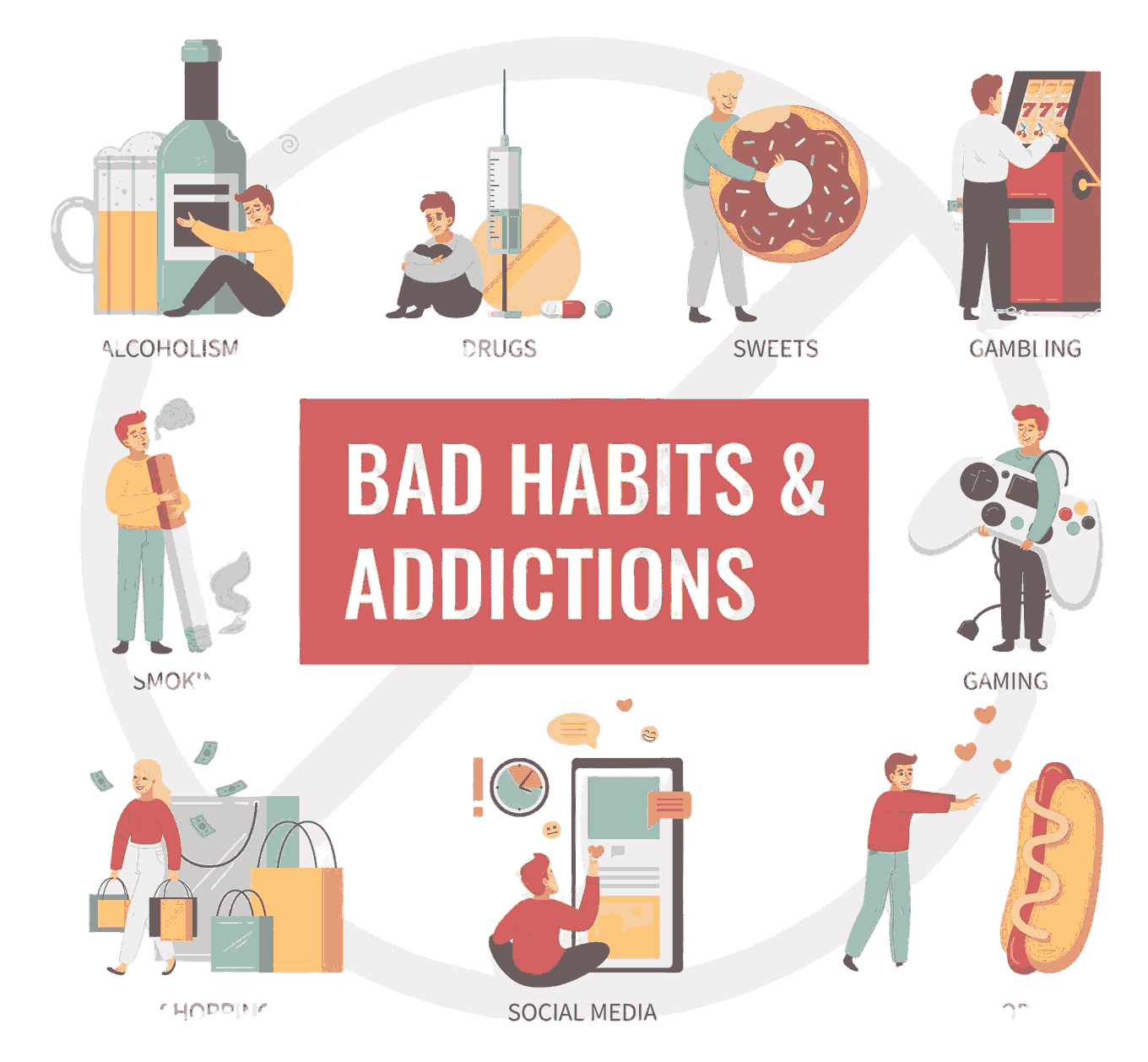
Is Alcohol a Depressant? Exploring Its Impact on Mental Health
Alcohol is one of the most extensively consumed substances worldwide, generally used to relax or celebrate. But is alcohol a depressant? The answer lies in how it affects the brain and mental health. Alcohol can have profound effects on mood and emotions, particularly when used excessively or over long periods. Let’s explore the connection between alcohol and mental health, including its role in depression and anxiety.
The Link Between Alcohol and Depression
According to research, there is a strong link between alcohol use and depression. However, alcohol is a central nervous system depressant, which means it reduces brain activity.This can worsen depressive symptoms over time, leaving people feeling even more hopeless or disconnected.Furthermore, persistent alcohol intake can affect neurotransmitter levels in the brain, including serotonin and dopamine, which are essential for mood regulation. This chemical imbalance can increase the likelihood of developing a depressive disorder, making the relationship between alcohol and depression a vicious cycle.
Is Alcohol a Depressant? Its Role in Anxiety
While alcohol may temporarily alleviate tension or social anxiety, its benefits are short-term. Regular consumption can lead to a rebound effect, where anxiety increases during withdrawal or hangovers. This phenomenon, known as alcohol-induced anxiety, often traps individuals in a cycle of drinking to ease anxiety, only to face heightened stress later.
Long-Term Mental Health Risks of Alcohol Use
Chronic or excessive alcohol use poses severe risks to mental health, including:
- Increased Risk of Major Depressive Disorder: Alcohol impairs brain function, heightening susceptibility to depression.
- Worsened Anxiety Disorders: Persistent alcohol use can lead to long-term anxiety issues that are difficult to manage without professional help.
- Cognitive Impairments: Prolonged drinking may cause memory loss, trouble concentrating, and reduced problem-solving skills.
- Dependence or Addiction: Over time, individuals may develop alcohol dependence, which further exacerbates emotional and psychological challenges.
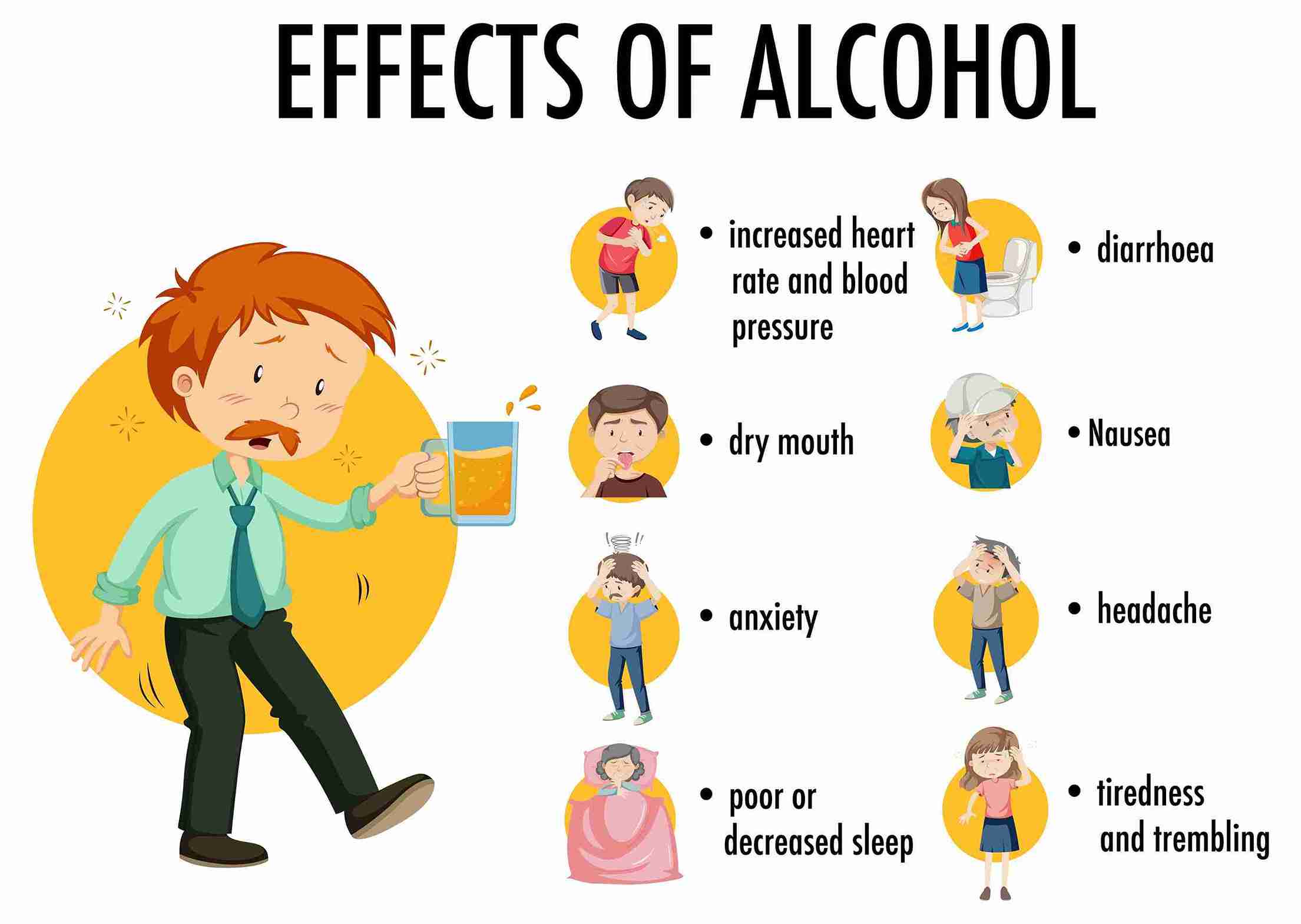
The Short-Term Depressant Effects of Alcohol
In the early stages of drinking, alcohol can lower inhibitions and increase dopamine, the brain’s “feel-good” chemical. This may create feelings of excitement, happiness, or boldness, which is why people often perceive alcohol as a stimulant at first.However, this phase is short-lived. As alcohol levels in the bloodstream rise, its depressant effects take over.
1.Slowed Reflexes and Impaired Motor Skills
Alcohol affects the brain’s ability to send signals quickly, leading to slower physical reactions and difficulty with coordination.
2.Difficulty Concentrating and Clear Thinking
Alcohol disrupts cognitive processes, making it hard to focus or make sound decisions.
3.Reduced Speech Clarity and Coordination
Slurred speech and unsteady movements are every day as alcohol impairs communication between the brain and muscles.
4.Drowsiness and Fatigue
As alcohol continues to slow brain activity, feelings of tiredness or the urge to sleep often follow.
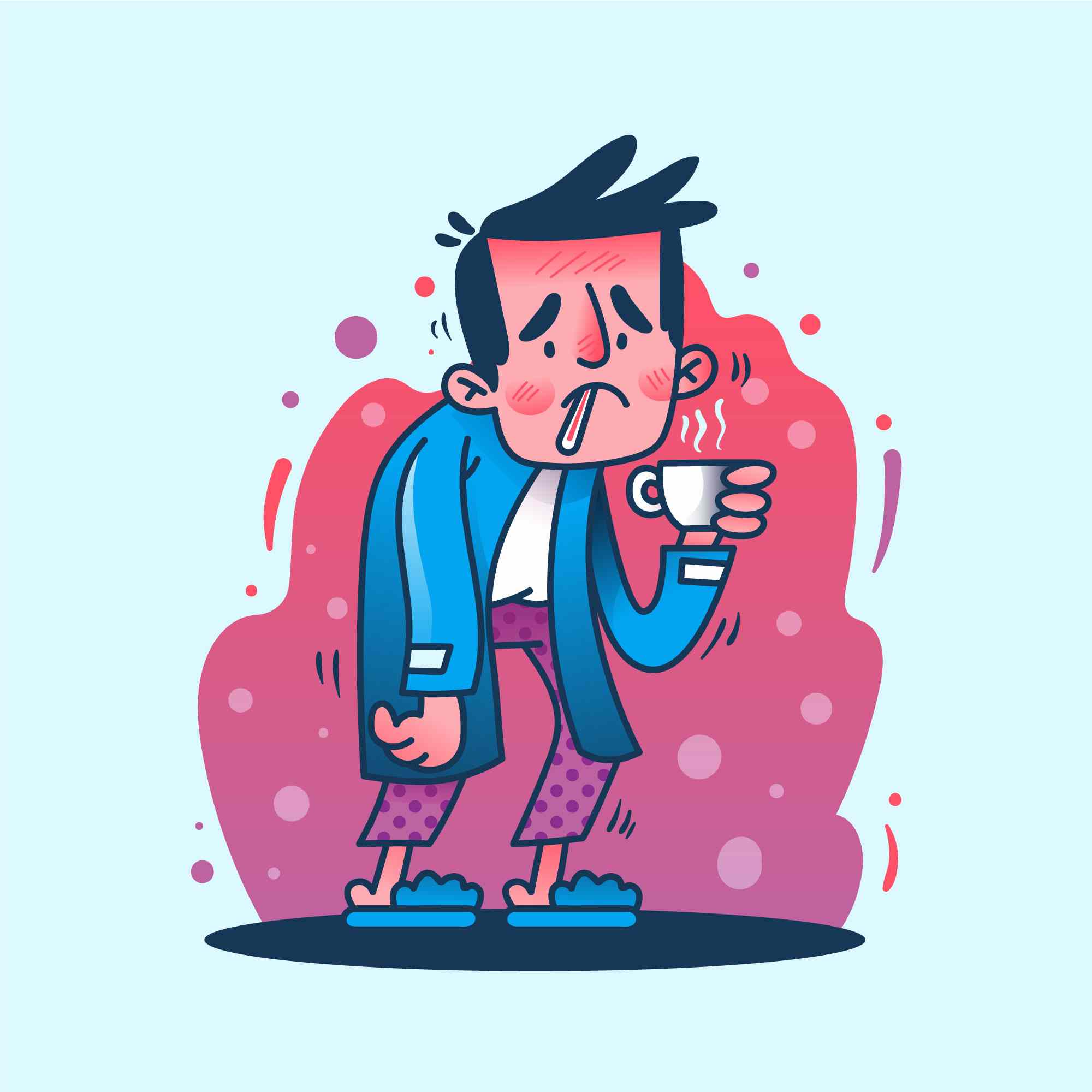
Risks Associated with Alcohol as a Depressant
Alcohol is a widely consumed substance, but its role as a depressant comes with significant risks. These effects are physical but also mental, emotional, and social. If you’re wondering, “Is alcohol a depressant?”, understanding the risks associated with its use is crucial.
1.Increased Risk of Physical Injuries
Alcohol impairs reflexes and coordination, making accidents, falls, and vehicle crashes more likely. These physical limitations can have immediate and often serious repercussions, such as fractures, head injuries, and long-term disability.
2.Worsening Mental Health Concerns
The link between drinking and mental health is complex. Regular alcohol consumption can worsen depression, anxiety, and other emotional disorders. While it may seem like alcohol offers temporary relief, its depressant effects can deepen feelings of sadness and hopelessness, creating a harmful cycle.
3.Dependence and Addiction Risks
Chronic use of alcohol often leads to dependence, both physical and psychological. The body grows dependent on alcohol to operate, making quitting increasingly tricky. Over time, this dependence can escalate into alcohol use disorder (AUD), a condition requiring professional intervention.
4.Serious Health Complications
Prolonged alcohol use as a depressant can cause:
- Liver damage: including fatty liver, hepatitis, and cirrhosis.
- High blood pressure: raises the risk of heart disease.
- Cognitive decline: Memory problems, difficulty concentrating, and an increased risk of dementia. These health complications often develop slowly, making early intervention crucial.
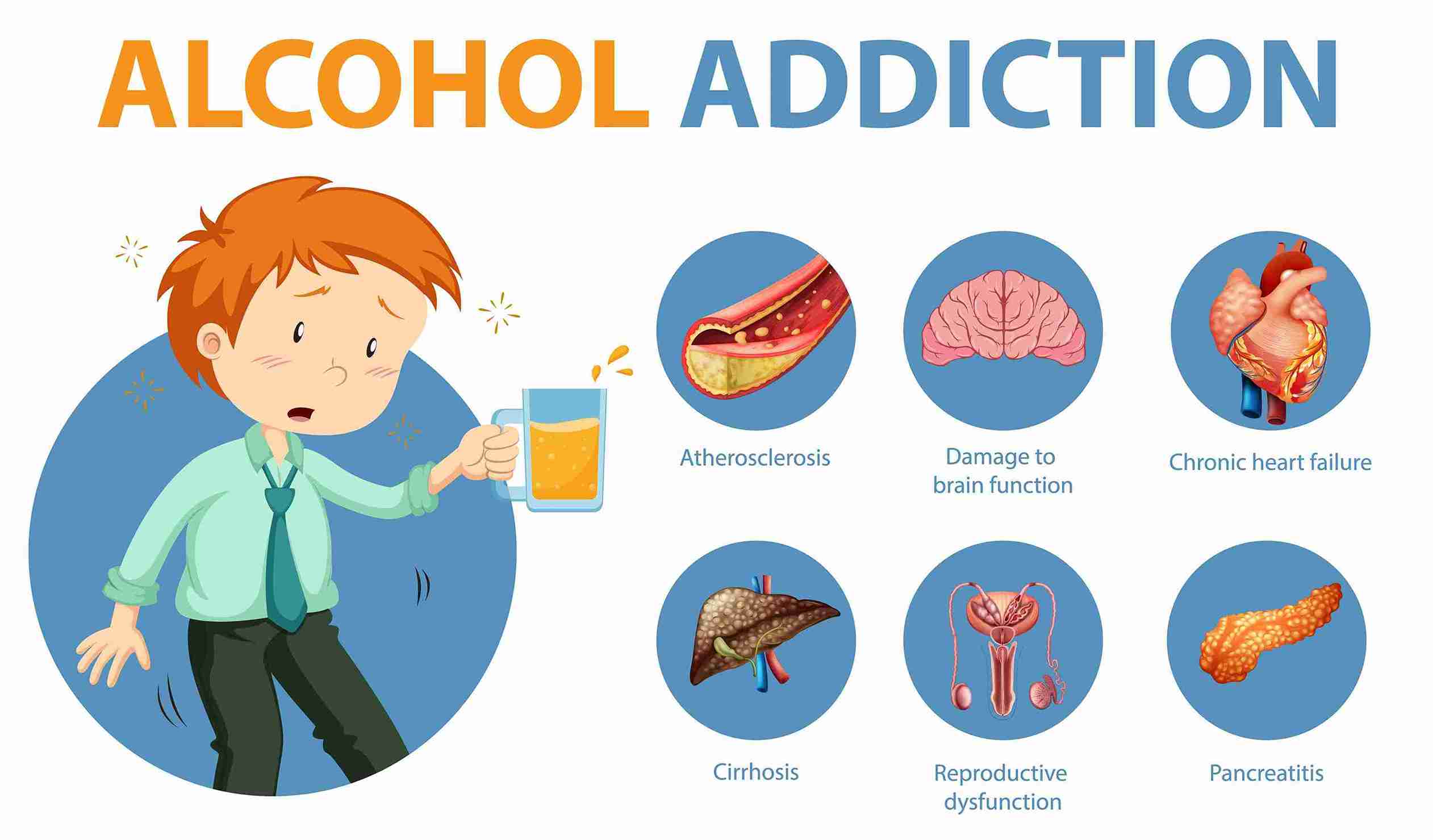
5.Strain on Relationships and Social Life
Alcohol’s depressant effects can negatively impact personal and professional relationships. Frequent use can lead to neglecting responsibilities, conflicts with loved ones, and poor work performance. Over time, these issues can result in isolation and reduced social support.
The Science Behind Alcohol’s Depressant Effects
Is alcohol a depressant? The answer is affirmative. Alcohol is regarded as a central nervous system (CNS) depressant, owing to its effects on brain activity and body function.While its initial effects might feel energizing, the underlying science reveals its true nature as a depressant. Here’s a closer look at how alcohol affects your mind and body.
How Alcohol Slows Brain Activity
Alcohol improves the activity of gamma-aminobutyric acid (GABA), a neurotransmitter that slows brain transmissions. This increased GABA activity results in feelings of relaxation, reduced anxiety, and impaired decision-making abilities.
Blocking Excitatory Signals
Alcohol inhibits glutamate, a neurotransmitter involved in excitatory actions. This suppression leads to slower reflexes, decreased alertness, and impaired memory and learning capabilities.
Temporary Boost in Dopamine Levels
Initially, drinking alcohol triggers a release of dopamine, the “feel-good” neurotransmitter. This creates a fleeting sense of euphoria and pleasure. However, as alcohol’s depressant effects set in, these positive feelings fade, often leaving individuals feeling lethargic or down. Repeated drinking can reduce baseline dopamine levels over time, contributing to dependence and depression.
Disruption In Motor Skills And Coordination
Alcohol disrupts the cerebellum, a brain area that affects balance and coordination. Even moderate drinking can impair your ability to perform physical tasks like walking steadily or maintaining fine motor control.
Impact on Vital Functions
Alcohol acts as a depressive, slowing the medulla, a region of the brain that regulates vital activities such as breathing and heart rate. Excessive drinking might result in life-threatening diseases, including respiratory depression or alcohol poisoning.
Treatment for Alcohol as a Depressant
If you’re wondering, “Is alcohol a depressant?” understanding its effects and seeking treatment is critical. Alcohol’s depressant nature can lead to both physical and mental health challenges, making a structured recovery plan essential.
Detoxification and Medical Support
The first stage in treating alcoholism is detoxification. This procedure aids in the elimination of alcohol from the body while under medical supervision. Withdrawal symptoms can be severe, so seeking expert help is essential to ensure safety and comfort.
Therapy & Counseling
- Cognitive-behavioral therapy (CBT) can identify and improve harmful cognitive patterns associated with alcohol use.
- Motivational Enhancement Therapy (MET): Encourages individuals to commit to a recovery plan.
- Group therapy programs, such as Alcoholics Anonymous (AA), offer peer support for those facing similar issues.
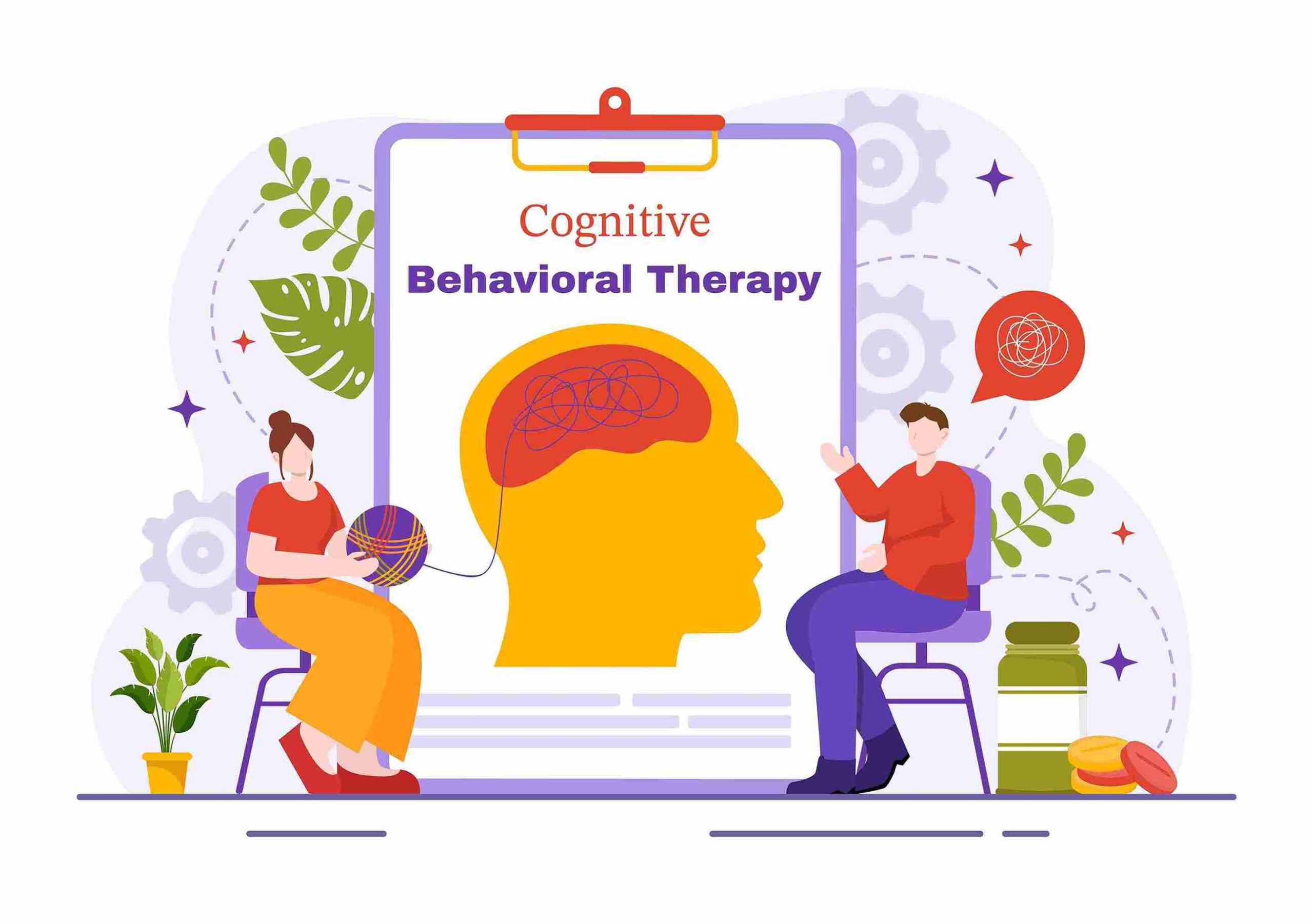
Medications for Alcohol Dependence
Certain medications can assist in managing cravings and reducing alcohol’s appeal:
- Naltrexone: Blocks the pleasurable effects of alcohol.
- Acamprosate: Helps maintain sobriety by balancing brain chemistry.
- Disulfiram: Creates unpleasant reactions to alcohol, deterring consumption.
Addressing Mental Health
Since alcohol is a depressant, it often worsens depression or anxiety. Treating co-occurring mental health conditions with therapy or medication is vital for comprehensive recovery. Dual-diagnosis programs focus on both substance use and mental health difficulties.
Lifestyle Changes and Self-Care
Incorporating healthy habits can support long-term recovery:
- Exercise: Boosts mood and reduces stress.
- Balanced Diet: Restores physical health and energy levels.
- Mindfulness practices: such as meditation and yoga boost mental health.
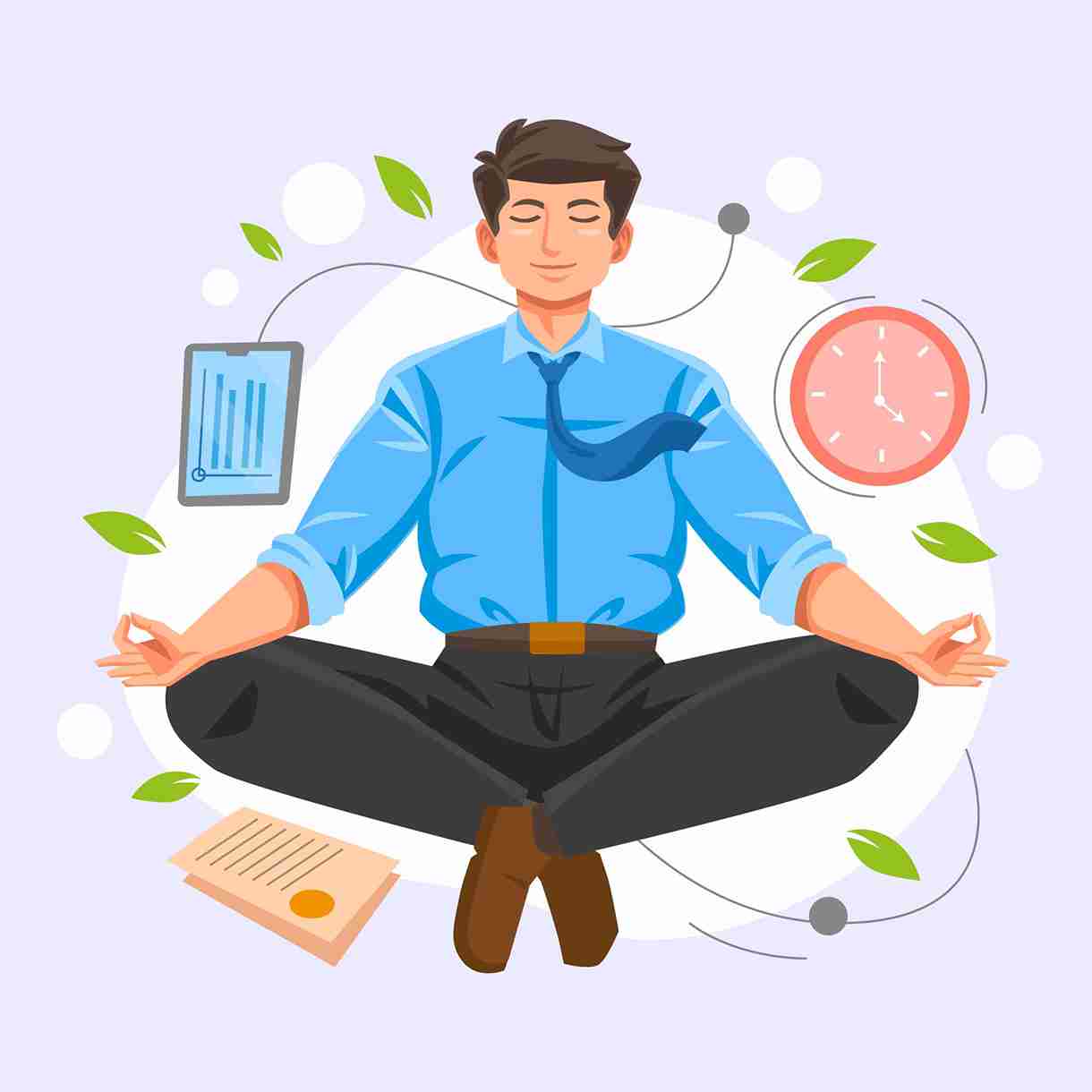
Ongoing Support
Recovery is an ongoing process. Staying on track requires regular check-ins with healthcare experts, participation in support groups, and the development of healthy relationships.
Final Thoughts: Understanding Alcohol as a Depressant
Alcohol’s classification as a depressant is essential to understanding its effects on both mental and physical health. If you or someone you know struggles with alcohol use, it’s essential to seek professional help.Therapy, counseling, and support groups can provide the guidance needed to regain control and improve overall well-being. Ultimately, moderation and awareness are key. Understanding the hazards and taking proactive efforts to reduce alcohol intake will help you safeguard your mental health and live a more balanced, healthier life.

